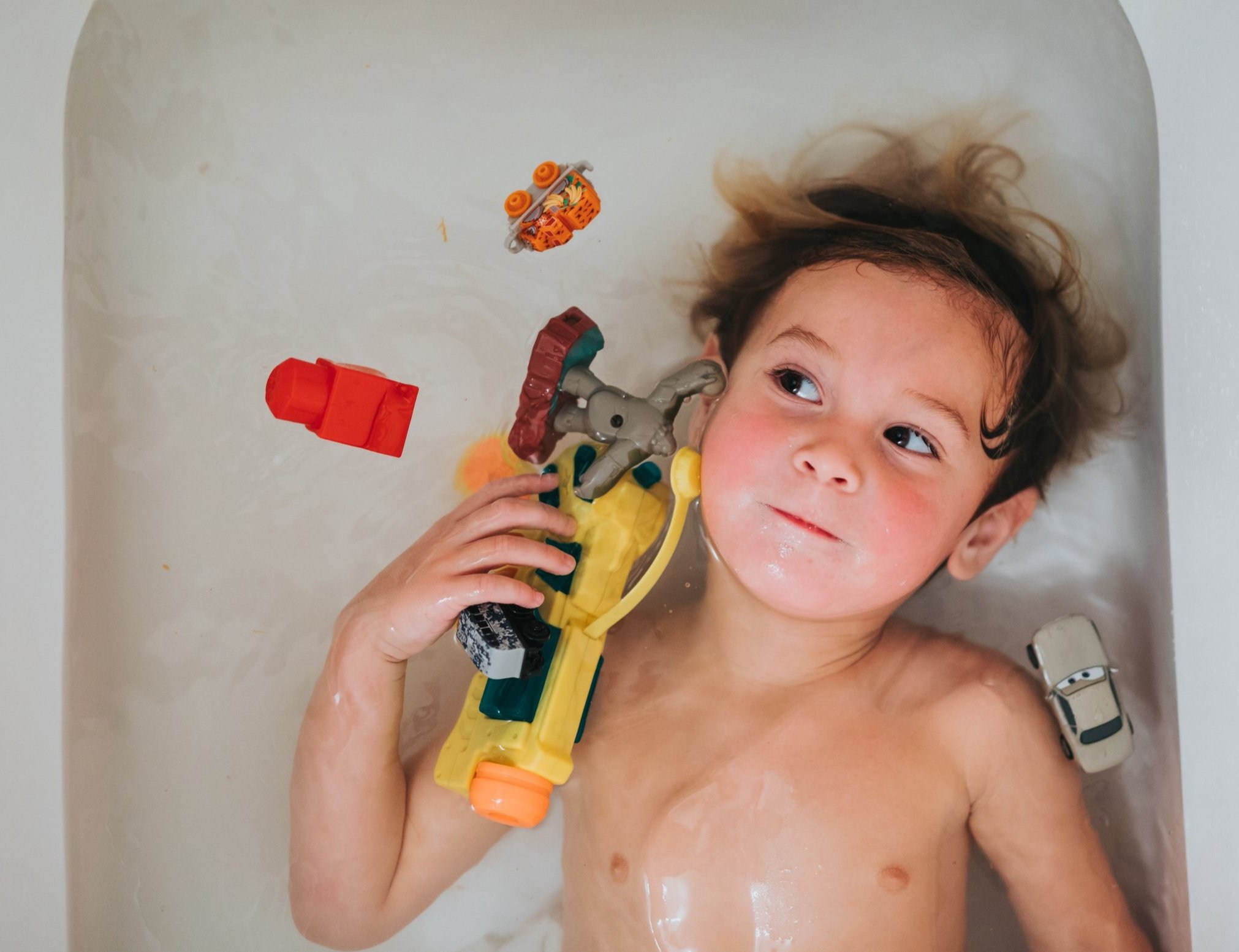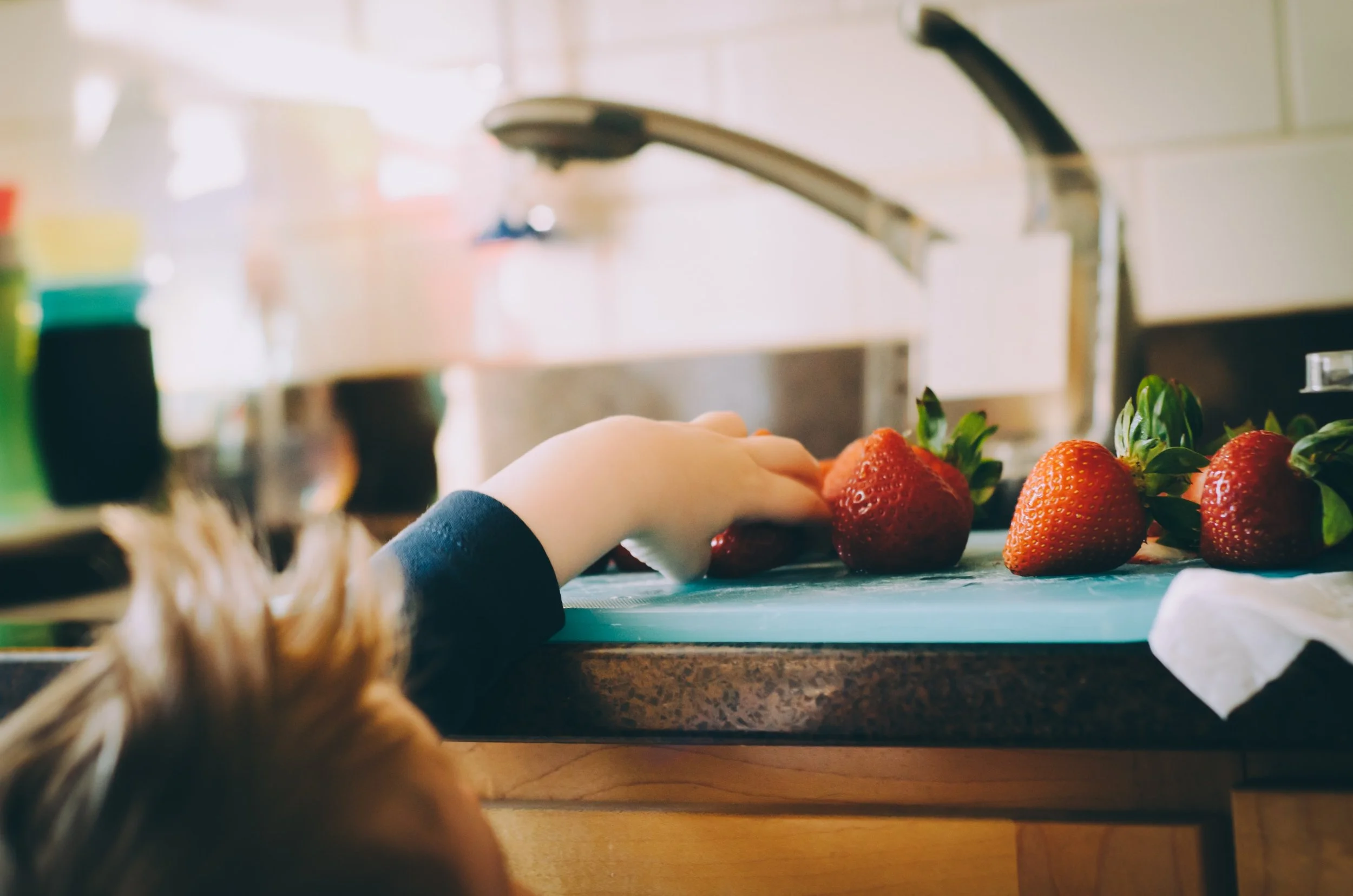Bunso is in da house!
The first day you brought her from the hospital, you got a feeling that nothing would ever be the same.
There’s a new sheriff in town, and the Universe will revolve around her. Every adult in a 30-meter radius will be at her beck and call.
For first-time parents, keeping a helpless little angel perfectly sound can be pretty nerve-wracking.
So in this post, we talk about baby-proofing the house so that not only your angel can sleep safe and sound…you can too!
Your Newborn
The great thing about newborns is not just their baby smell, it’s the fact that they haven’t learned how to walk yet.
They’re always on their backs and alert you when they want something. They make a fuss and you know something’s up. When they’re quiet, everything’s dandy.
(With toddlers, ages 2-3, things are a little different. It’s when they’re quiet in the next room that alarms you. They’re usually up to something. And it’s probably a mess that requires cleaning.)
With a newborn, the best thing you can do is to prepare before he or she arrives. Go proactive and address potential hazards even before your “master” gets home.
Here are some things to keep in mind:
Keep everything clean.
Having your baby in the house ups the ante for hygiene. Parenting at this stage is about keeping things tidy.
Clean every feeding implement, equipment, piece of clothing, and toy that will be interacting with your baby.
Baby’s room must be free from insects and allergens. Be careful with fragrances and perfumes as they can easily irritate the skin. (Do all your insect spraying well before the baby comes.)
Speaking of which, parents must wash their hands before handling their newborn and his belongings. You may have been cleaning or cooking, and you don’t want your baby’s skin to interact with chemicals or substances that can easily irritate it.
If you’re sharing the room with your baby or if the baby’s staying with the couple, then you’re also going to have to up your personal hygiene game. Showers and fresh clothes are the order of the day.
And, to avoid rashes and skin issues, soiled diapers, blankets, or clothes should be quickly handled, discarded, or washed.
Small objects are a No-No to your little one.
Your child’s curiosity will increase with each passing day. At this stage, anything she can get her hands on she delivers to her mouth. So there is a real risk of choking.
In addition to keeping a clean room, keep the room free from choking hazards. And the thing with choking hazards is that they don’t have labels on them. A nondescript, seemingly harmless thing, in the hands of a curious infant, can be dangerous. This includes loose parts of toys, frayed fur from stuffed toys, cotton balls, and cotton buds. (Even food can be a choking hazard!)
More Safety Tips
Your baby will be moving even when she sleeps. Keep her surroundings fluffy and soft.
Prevent scratches by keeping your newborn’s hands and toes wrapped with soft mittens.
Keep pets away from the baby.
Make sure cribs, strollers, and bassinets have passed safety standards. Best to use standard equipment to ensure your newborn’s safety.
As much as possible, avoid exposing your baby to commercial chemicals and substances (eg. phthalates, bisphenol A, parabens, dyes, and colorants). Lead is a toxic chemical and can be found in old paint, certain toys, and some baby products. Check for lead.
Your Toddler
When your little guy or little gal begins to walk, that’s when things take a turn. They don’t call it the “terrible twos” for nothing.
Here are ways you can safeguard your angel:
Determine beforehand the rooms where your toddler is allowed, and the rooms where he can never step foot on. Then install safety gates so you can have control and restrict his access to certain areas. Doors and staircases are prime spots for these gates.
With a rampaging little one bouncing around the house, things that can fall…will fall. Anchor heavy furniture, such as bookshelves and dressers, to the wall to prevent them from tipping over. Imagine your house as a ship on rough waters. Secure everything or they will roll around.
Avoid placing objects on high surfaces like the tops of refrigerators. Those objects on top can fall and hit your happy tyke.
- For the next few years, say goodbye to glass furniture, fixtures, and features. Knick-knacks that can be broken (eg. porcelain vases) are best kept in areas out of reach. You would want your kid to explore his environment, but you don’t want to be always telling him “No, don’t touch that!” so keep his environment age-appropriate.
Keep sharp objects, cleaning chemicals, breakable objects, and other hazards out of sight. They should be stored in cabinets and drawers with safety locks.
The kitchen is full of hazards for your baby. Flames, boiling water, knives, hot chilis, heavy pans, hot surfaces, not to mention the slippery countertop. That corner of the house should be off limits to your toddler, unless with adult supervision.
Use outlet covers or safety plugs to prevent little fingers from poking into electrical outlets. Make sure your electrical cords don’t have “bare” sections that can give your child a zap.
Electrical cords can also be strangulation hazards. So are the cords for window blinds and curtains. These should be tied and secured.
Your tyke doesn’t have the best balance and may fall often. Minimize this by securing rugs and carpets with double-sided tape or using non-slip mats.
Ninety-degree angles are not child-friendly. These can be the corners of tables that your child can run into or sharp furniture edges that stand out. Round these edges out by covering them with soft cushions or cut foam. The architect Gaudi was right—no intersecting straight lines.
Speaking of countertops, your child will display a fondness for climbing. The only way to combat this is through constant supervision. But since you can’t always keep an eye on them 100% of the time, remove the temptation by moving chairs away from countertops, keeping cords out of sight, and limiting access to these “climb points” around the house.
Like the kitchen, the bathroom is a place your baby should never be alone. Cover pails, water storing drums, (even toilets), and other drowning hazards. Make sure that the floor is, (if not dry), free from spills of shampoo or lotion that your child can easily slip in. And, as mentioned earlier, round out the sharp edges in your bathroom.
Remember, with a toddler:
Anything that can be pulled…will be pulled.
Anything that can be removed…will be removed.
Anything that can be opened…will be opened.
Anything that can be slammed…will be slammed.
Anything that can break…will be broken.
Anything that can fall…will fall.
Keep these in mind when proofing your home.
Teaching Safety
The child is your partner in safe play and exploration. So besides the measures mentioned above, you should also work with your kid to instill safety awareness in him.
#1 Talk to your child. Kids don’t necessarily understand why some things are prohibited and why others are allowed. Teach him of the potential dangers of certain objects and behaviors. You won’t get 100% compliance, and that’s really not the goal, but plant the seeds of awareness.
#2 Set Boundaries. Establish clear boundaries for where certain behaviors are allowed and where they’re not. Consistently enforce these rules.
#3 Model Safe Behavior. Children often mimic their parents, so be a good role model by showing them how to do things properly.
#4 Praise and Reward. Praise your child for making safe choices and following your instructions. Positive reinforcement can encourage them to avoid risky behavior.
#5 Provide Alternatives. Instead of always saying “No!” or “Stop that!”, offer play opportunities, like in areas where proper safety measures are in place.
#6 Educate. Education is not a one-time thing. There’s a lot of repetition involved. As your child grows, explain the dangers and the safe ways of playing or exploring the environment.
With these tips, your baby can safely explore and learn about the world and develop his or her physical abilities.
BloodWorks Lab is your family partner in safety and health. We offer a range of check-up packages that monitor your family’s health. For example, we have the Well-being Package, the Diet/Weight Management Package, the Senior Citizen’s Check-up, and the Employment Package.
Our offerings also include the APAS Panel, designed to support couples on their journey toward parenthood.
BloodWorks Lab is your one-stop shop for all your blood test needs. We are the first in the country to offer the Anti Acetylcholine Receptor (lgG) Antibody Test and the Anti N-Methyl-D-Aspartate Receptor (Anti NMDA Receptor) Antibody Test.
Book your appointment today.
Our branches are in Alabang, Katipunan, and Cebu.






